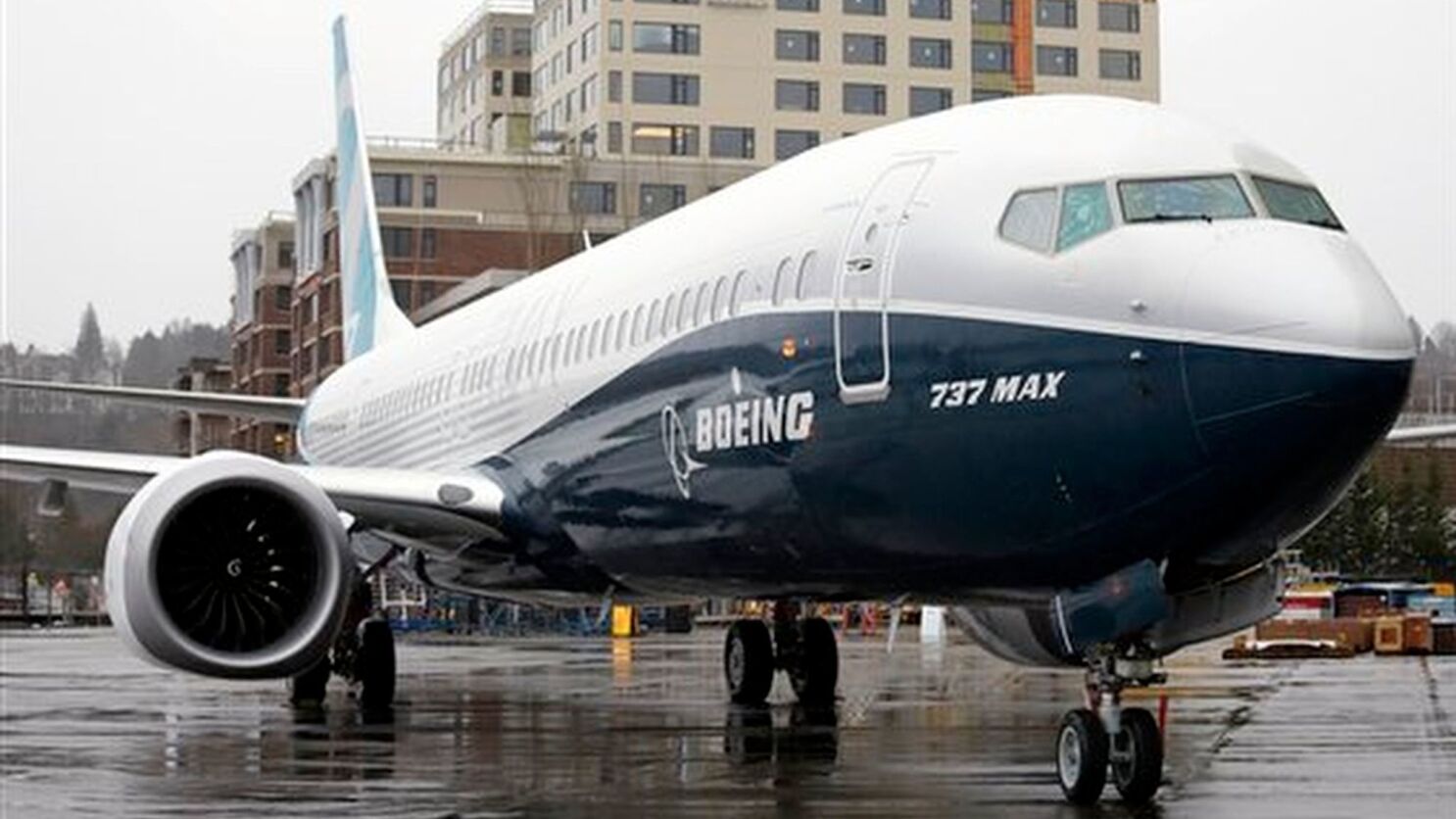Aircraft Property Tax By State - Property taxes are the largest source of revenue for state and local governments, accounting for approximately 31.5 percent of total US tax and property tax collections in fiscal year 2016.[1] Most property tax revenue goes to local governments, and states rely on property taxes to fund public services such as public education, which made up about 72 percent of all property tax revenue in fiscal year 2016.[2]
The property tax base is an important part of state and local tax codes, because property taxes change business investment decisions and where people decide to live. Although most people are familiar with the tax on residential land and property, known as the real property tax, many states also have a personal property tax (TPP) that is levied on individuals and businesses.
Aircraft Property Tax By State

Tangible personal property (TPP) consists of property that cannot be moved or touched, and typically includes items such as business equipment, furniture, and vehicles. This is in contrast to intangible personal property, which includes stocks, bonds and intellectual property such as copyrights and patents.
Missouri State Tax Commission » 2022 Instructions (107) Fiber Telecommunications Companies Aggregate Statement Of Taxable Property
Taxes in the TPP make up a small portion of state and local tax collections, but they have high compliance costs, distort investment decisions, and are an archaic form of taxation. This paper reviews the history and administration of taxation of tangible personal property, examining how countries have changed their tax collection in the TPP over the past 10 years. It will provide recommendations on how policymakers can reduce the tax burden of the TPP while recognizing how TPP taxes provide states with the revenue they need, using the country's past experience as a guide. This will give state and local governments a path forward in eliminating the TPP tax from their tax codes in the long term.
In the United States, personal property taxes are similar to real property taxes. The property tax was originally closer to a wealth tax than the modern property tax, because the personal property tax was lowered.[3]
Century attempted to reduce taxes on real estate and certain types of personal property, such as property and machinery.[4] Individual property for personal use was gradually removed from the tax base in 20
Internationally, countries are moving away from taxing private tangible property: of the 36 countries of the Organization for Economic Co-operation and Development (OECD), only seven countries tax private property: Austria, France, Germany, the Netherlands, Japan, the United Kingdom, and the United States. [5]
What Americans Abroad Should Know About Filing State Taxes
Over time, America's personal property tax base eroded as states granted exemptions to various forms of the TPP. For example, agricultural, manufacturing and renewable energy companies are generally exempt from TPP tariffs. Many countries offer exemptions from economic development if companies meet certain criteria, such as the number of new jobs created or a set amount of investment in the area.
For example, Maryland allows local governments to extend credit to expand manufacturing facilities.[6] Similarly, Idaho allows states to issue TPPs that are part of a minimum investment of $500,000 in a new manufacturing facility for up to five years.[7]
Seven states (Delaware, Hawaii, Illinois, Iowa, New York, Ohio, and Pennsylvania) exempt all TPPs from taxation, while five other states (Minnesota, New Hampshire, New Jersey, North Dakota, and South Dakota) exempt most of the TPP from taxation. except for certain centrally inspected industries, such as public utilities or oil and natural gas refineries.

Taxes in the TPP are mostly collected by local governments, but are regulated at the federal level. There are many variations on how the TPP is taxed. Property classifications, valuations, and exemptions are often set by the state, with jurisdictions choosing to tax TPP within the limits set by the state government. Twenty-three states allow municipalities to deduct taxes owed on the TPP, while 27 states do not offer this option (see Table 2 in the Appendix).
Kathryn's Report: Ohio State University Airport (kosu) Has Been Tax Exempt Since 1943. That Could Change
The process of calculating and paying TPP taxes is complex and varies from state to state. Companies must first determine which properties are eligible for taxation, which varies from state to state, county and municipality. Countries generally exclude personal property from TPP taxes, instead focusing on the business environment.
Other long-lived taxable assets such as cars, boats, and aircraft held for personal use say that these assets have a liquid secondary market and avoid many of the administrative challenges of valuing other personal use properties. For properties that are not exempt or excluded from the TPP tax base, the TPP tax liability is calculated by first determining the property's estimated value and multiplying it by the property's assessment rate. Assessments generally lower the property's taxable value, reducing the taxpayer's tax liability.
Appraisal rates may also be higher for TPP than for actual residences. Fifteen states use different TPP assessment measures than actual buildings. This means that the TPP has its own benchmark to determine the value of the property that will be subject to the property millage tax. Countries may also charge different tariff rates for different types of TPP. For example, South Carolina uses a 5 percent tax on farm machinery and equipment, compared to 10.5 percent in most other TPPs.
For example, consider the rubber industry in New Mexico. Businesses must first determine whether the TPP is taxable. The New Mexico TPP taxes controlled businesses that require a reduction in state taxes for the previous tax year. Therefore, business rubber manufacturing equipment is taxable, unless it is used for an exempt purpose. If the business is a tenant of a major urban redevelopment project, for example, the TPP may be exempt for up to seven years from acquisition.[9]
Business Personal Property Taxes In Texas [for 2021]
Once a business has determined its taxable property, it must value the property. New Mexico values property by evaluating the cost of the property, the value of the property when sold, and the current value of the income generated by the property.[10] For machinery and equipment, the cost method is widely used.[11]
Property values are then depreciated using the straight-line method using a government-prescribed depreciation schedule.[12] The straight-line method of depreciation is calculated by dividing the value of the asset by the number of years it is expected to be used and subtracting that amount from the value of the asset each year.[13] This amount is multiplied by the same state assessment rate, which is set at 33.3 percent for all properties, to determine the property's taxable value.[14]
The taxable amount is multiplied by the millage, which is the applicable property tax rate. States may apply the same tax rates to real or tangible personal property or may impose different tax rates on different types of property. Charging different tax rates on TPPs is one way local governments can raise more revenue in the non-residential area and favor certain taxpayers.[15]

If the TPP tax is calculated, taxpayers can reduce their liability with tax credits and deductions. TPP tax credits are often used to promote economic development. In Maryland, for example, states can provide tax credits for new manufacturing facilities or expansions under certain conditions.[16] The deduction, which reduces taxes owed after assessment but before they are paid, is another way states and cities can reduce their TPP tax burden. Nevada applies a tax deduction to businesses operating in economic development zones, for example.[17]
Boeing Got A Record Tax Break From Washington State And Cut Jobs Anyway. Now The State Wants To Strike Back
Like restrictive laws established for real estate, state governments have placed limits on the growth of personal property taxes. Property taxes can be determined in three ways: assessment limits, tax limits, and assessment limits.[18]
The rating cap limits TPP tax increases that result in increased assessed value.[19] While real property typically appreciates, private property typically depreciates over time.[20] Therefore, the valuation limit is less applicable to personal property, as such property is less likely to require a limit on the growth of the appraised value.
Personal property tax laws may be subject to a limited rate, which limits the ability of state and local governments to raise tax rates above the absolute limit or above a fixed growth rate. This reduces the growth of revenue from personal property taxes by deliberately increasing tax rates. Tariff rates are very common in the TPP and are usually set by law at the federal level.
The levy limit places a cap on the total amount of revenue collected from property taxes. Levy restrictions can apply to both real property and personal property. In Washington, the state constitution limits real and personal property taxes to 1 percent of property value unless voters agree to a higher percentage.[21]
Aviation Laws And Regulations Report 2022 2023 Usa
A property tax conforms to the profit principle and is economically viable if it is placed on real property.[22] Real estate taxes fund local government services, and are an obvious form of taxation. Included in the real estate tax base is land, which produces economic rent and is an efficient source of tax revenue.
Landowners cannot dispose of their land and avoid tax obligations and will fully bear the taxes imposed on the land. Real estate taxes are also imposed on land construction and development, affecting non-essential decisions on building and maintaining buildings; evidence shows that property taxes are an important factor in business location decisions.[23]
A real person
Personal property tax by state, property tax by state, business property tax by state, average property tax by state, us property tax rates by state, property tax by state map, property tax list by state, aircraft sales tax by state, aircraft property tax, property tax comparison by state, highest property tax by state, us property tax by state


0 Comments